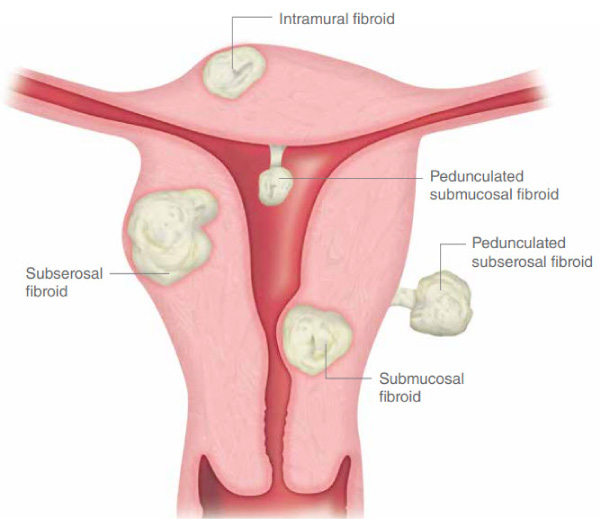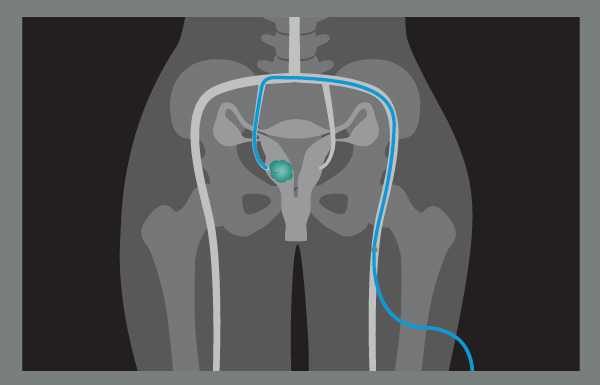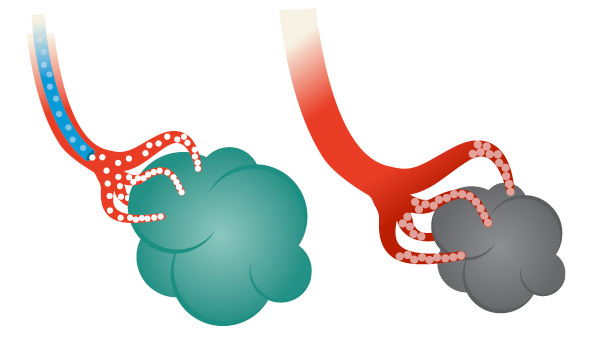
Uterine Fibroid Embolization - Non-invasive treatment of Uterine Fibroids
What are Uterine Fibroids?
Uterine Fibroids are the most common benign tumor diagnosed in women. Uterine Fibroids cause heavy bleeding, pelvic bloating and pressure, constipation and frequent urination. They can range in size from very small to a softball size or even larger. Occasionally, they can cause the uterus to grow to the size of a second or third trimester pregnancy; and in most cases there is more than one fibroid in the uterus.
Fibroids can be found in three locations within the uterus: Subserosal fibroids develop under the outside covering of the uterus and expand outward through the wall, giving the uterus a bloated appearance on ultrasound and MRI scan. Intramural fibroids are located within the wall of the uterus and can grow in size over time to cause symptoms relating to their size as well as heavy bleeding. Submucosal fibroids are directly under the lining of the uterine cavity, and even if very small, can be associated with heavy menstrual bleeding.

Why consider UFE?
Mountain Medical offers Uterine Fibroid Embolization (UFE), a procedure that significantly or completely relieve symptoms. The treatment is non-surgical and is performed by an interventional radiologist (IR). UFE is done under local anesthetic with sedation and usually lasts about an hour.
90% of women show significant improvement in symptoms and quality of life after UFE.
The main benefit of UFE is that one's uterus remains preserved, whereas with a hysterectomy, it is taken out entirely.
What to Expect

A tiny incision will be made in your upper thigh or wrist and a very thin catheter will be inserted. Using xray guidance, the IR will locate the vessels that supply blood to the fibroids.


Small particles will be injected into the vessels, blocking the blood flow to the fibroids. Without blood supply, the fibroids will shrink and symptoms will be alleviated.

UFE is typically performed as an outpatient, although some patients may require 23 hours for observation and pain control management. All women who undergo fibroid embolization will have cramping and pelvic pain/discomfort for the first 4 - 6 hours, which is treated with a combination of intravenous anti-inflammatory and narcotics via patient controlled anesthesia (PCA pump).
Patients are then followed closely by telephone and clinic visits during the first several weeks and follow-up MRI pelvis and clinic visit at 6 months. All patients are instructed to return to their primary care physician or gynecologists for ongoing medical care, and to take a week of work off following the procedure. Most women return to full activity within 5 - 10 days following the embolization.
If you have fibroids, UFE could be a life-changing treatment option.

Call for a Consultation today.
(801) 281-7777
Or request an appointment below.
5334 S. Woodrow Street, Murray / Suite 101
1486 E Skyline Drive South Ogden
If you would like more information or would like to schedule an appointment, please fill out this form and someone will contact you.
Images - © Merit Medical, Used With Permission






